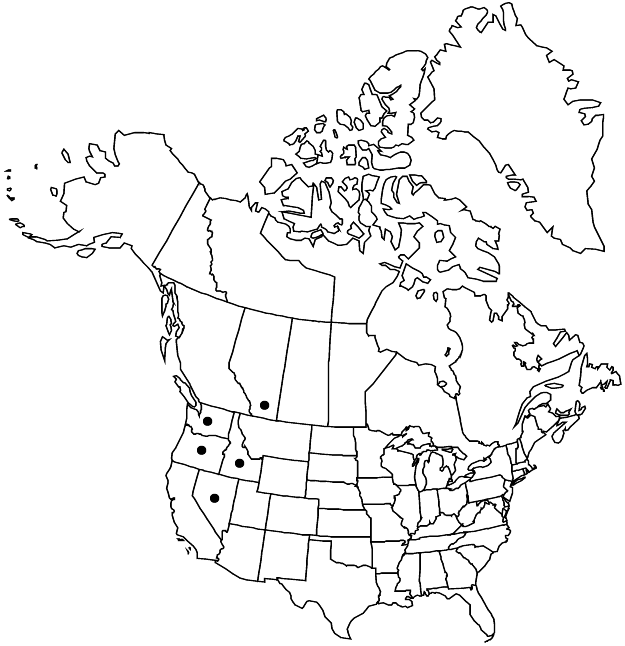Difference between revisions of "Eremogone congesta var. prolifera"
Sida 21: 239. 2004.
imported>Volume Importer |
imported>Volume Importer |
||
| Line 64: | Line 64: | ||
|publication year=2004 | |publication year=2004 | ||
|special status=Endemic | |special status=Endemic | ||
| − | |source xml=https:// | + | |source xml=https://bitbucket.org/aafc-mbb/fna-data-curation/src/2e0870ddd59836b60bcf96646a41e87ea5a5943a/coarse_grained_fna_xml/V5/V5_126.xml |
|subfamily=Caryophyllaceae subfam. Alsinoideae | |subfamily=Caryophyllaceae subfam. Alsinoideae | ||
|genus=Eremogone | |genus=Eremogone | ||
Latest revision as of 22:09, 5 November 2020
Stems 15–25 cm, glabrous to stipitate-glandular. Leaves: basal blades mostly erect, filiform, (2–)3–8 cm × 0.3–0.7 mm, herbaceous. Inflorescences subcapitate, subcongested to proliferating cymes; bracts scattered within inflorescence. Pedicels 1–6(–15) mm, glabrous or sometimes stipitate-glandular. Sepals weakly to conspicuously 1–3-veined, (4.5–)5–6 mm, apex acute to acuminate or spinose, glabrous or glandular.
Phenology: Flowering late spring–summer.
Habitat: Sagebrush plains and slopes
Elevation: 500-900 m
Distribution

Alta., Idaho, Nev., Oreg., Wash.
Discussion
We consider var. glandulifera to be a glandular extreme of var. prolifera. It is known from a single specimen (Ownbey & Ownbey 2763, NY) collected in Valley County, Idaho, in 1946. While most specimens of var. prolifera are glabrous, the pubescence on the stems and pedicels of a collection from Douglas County, Washington (Hitchcock 17459, WTU) closely approaches that seen on the type of var. glandulifera.
Selected References
None.